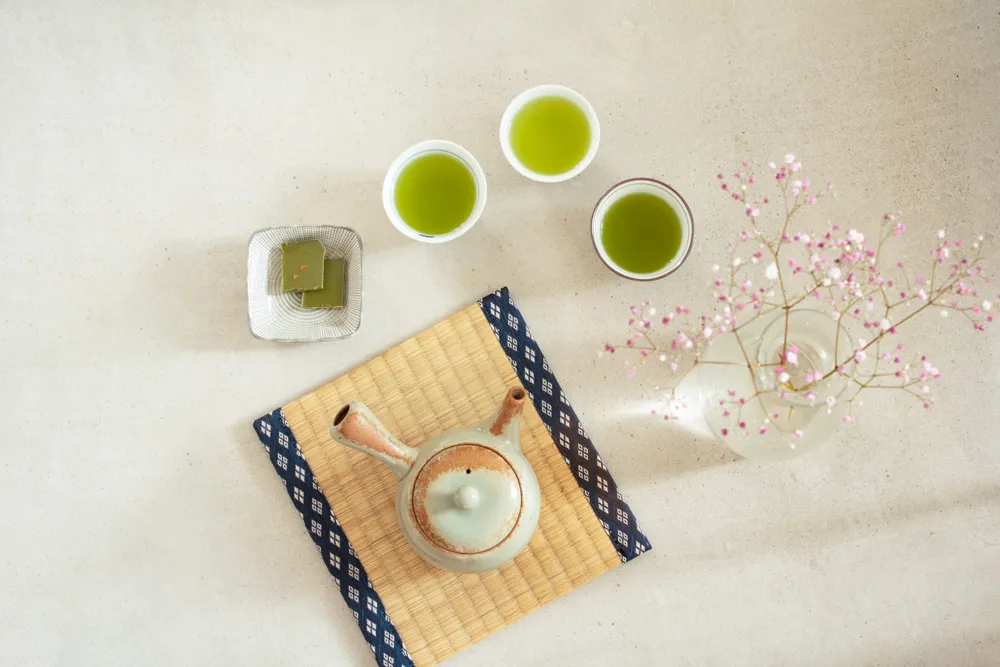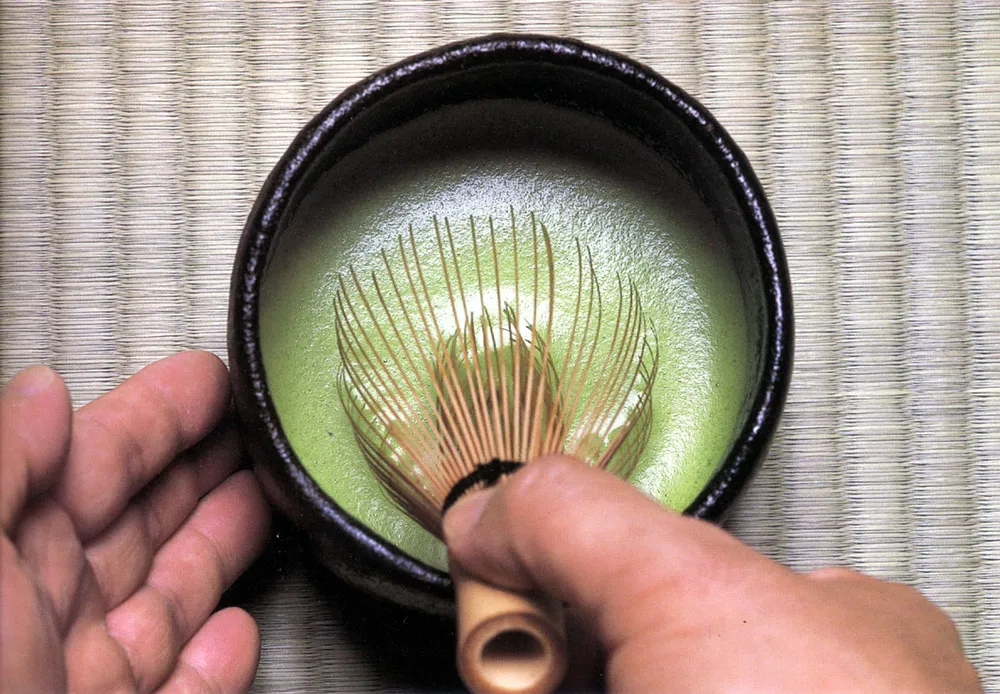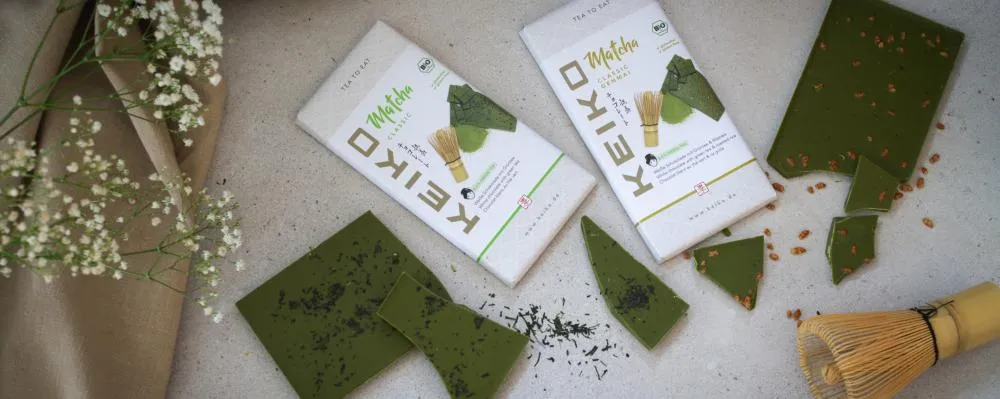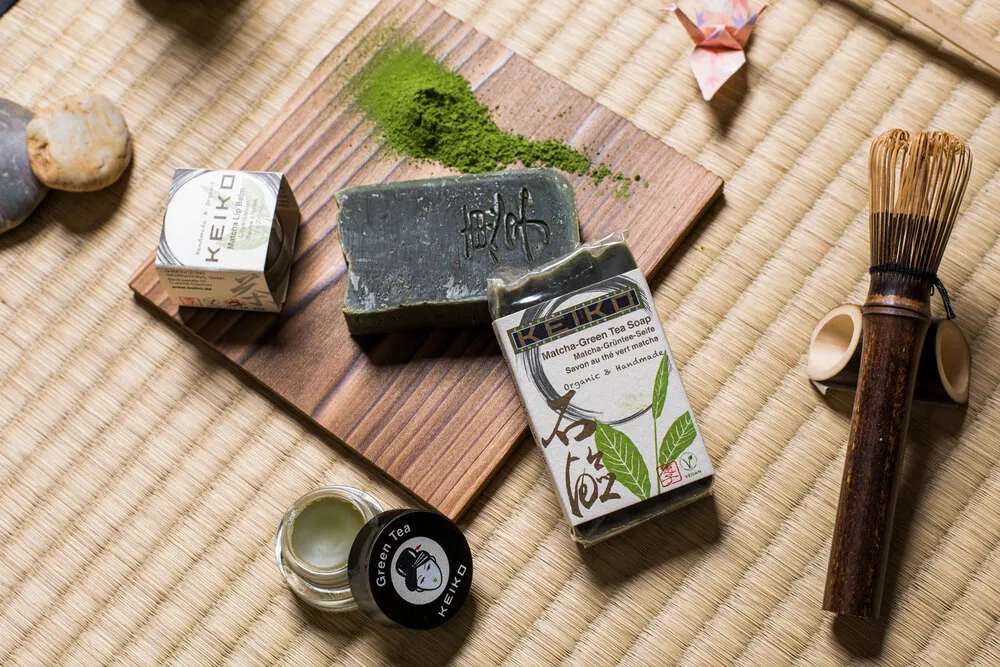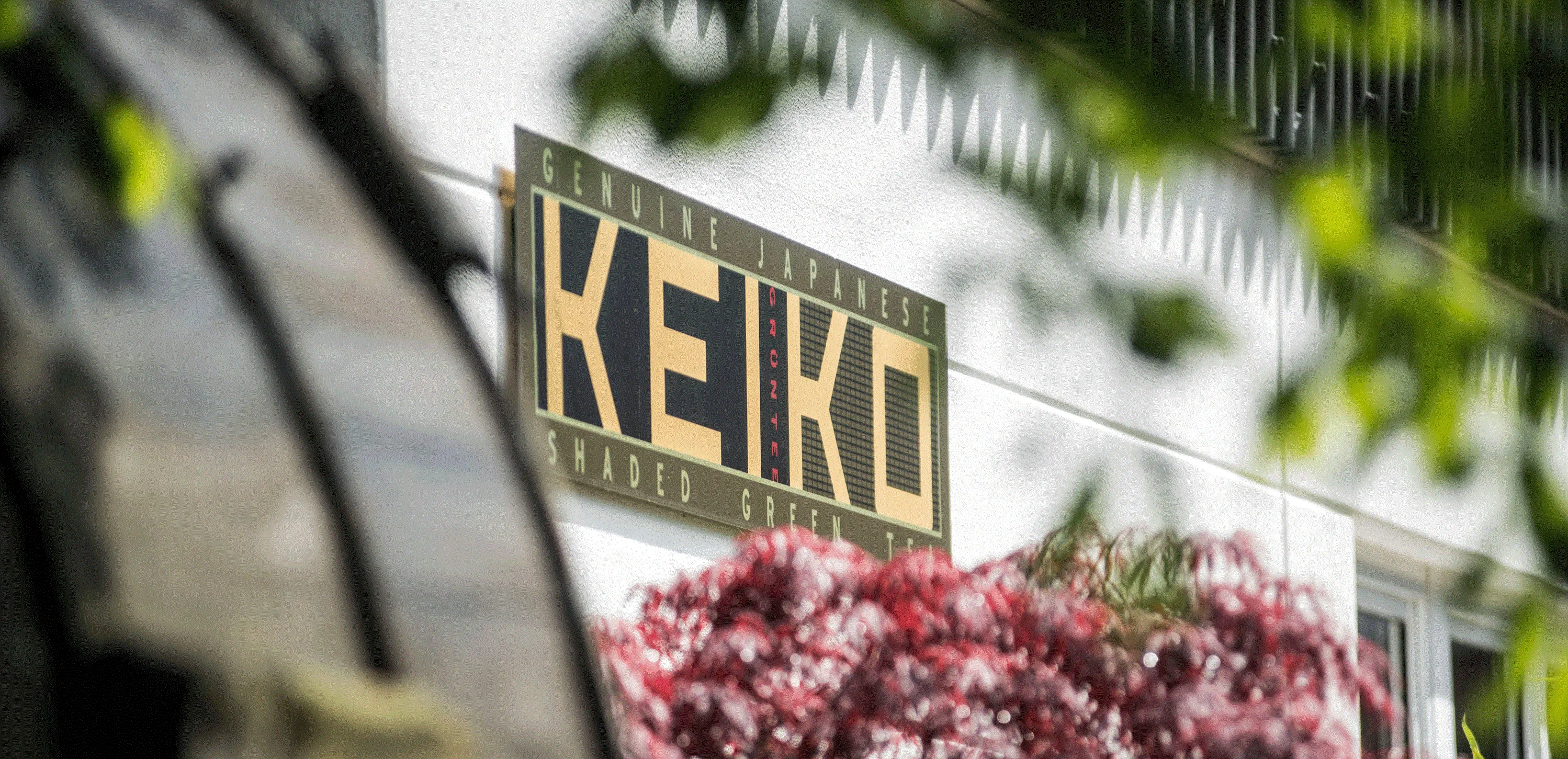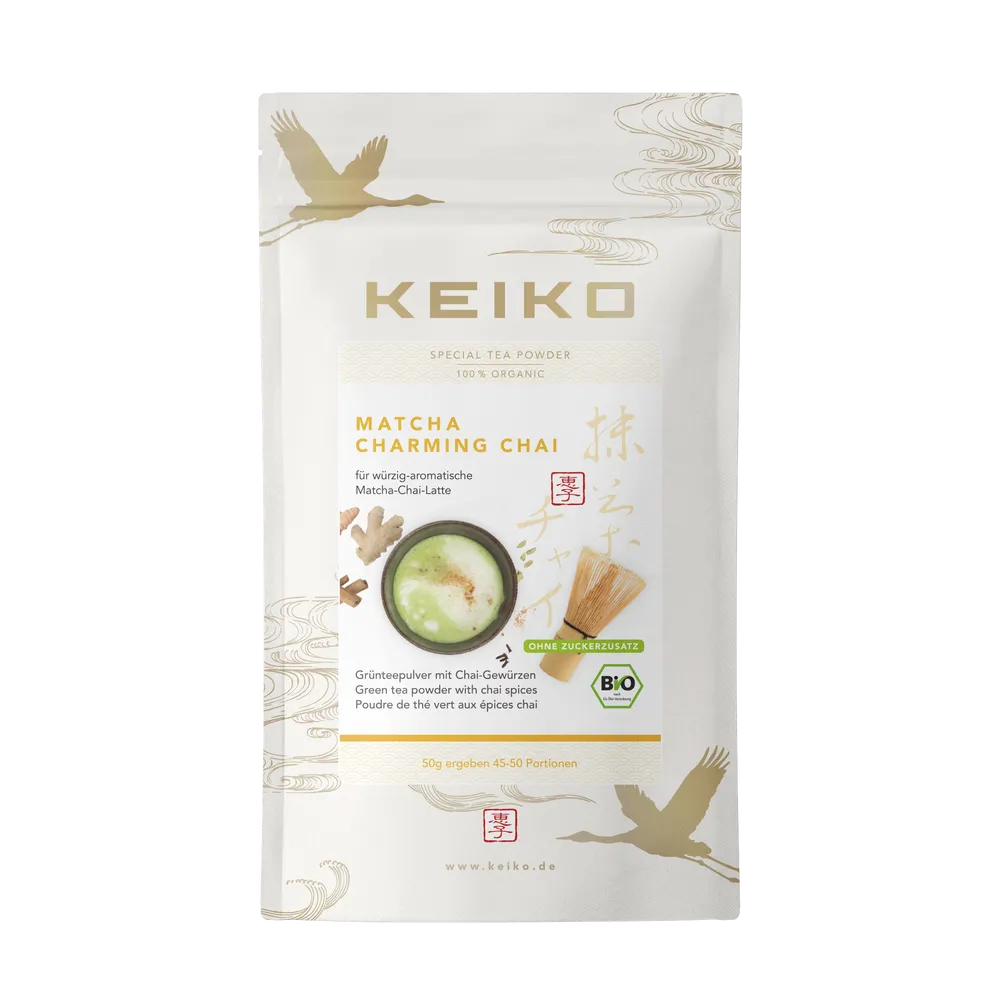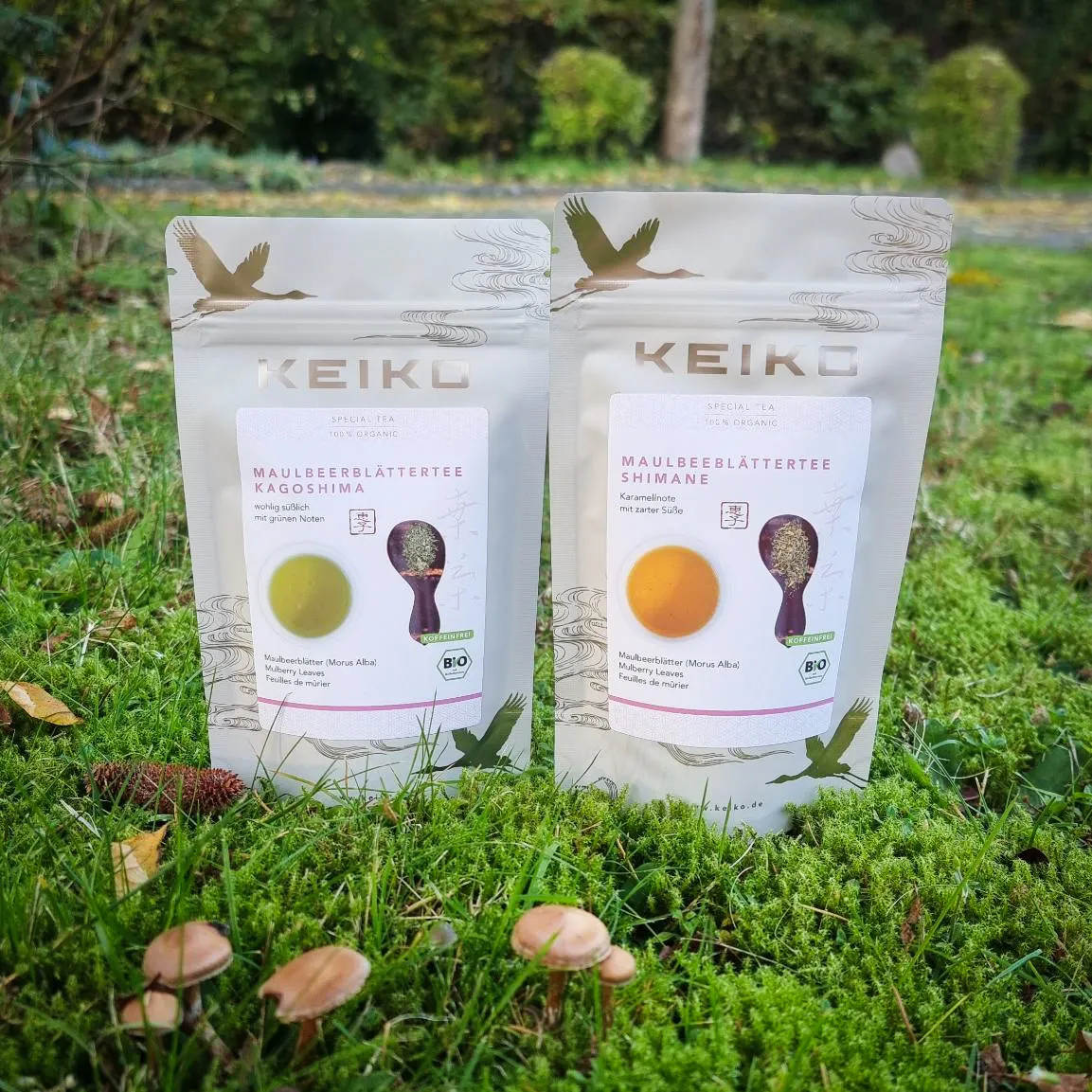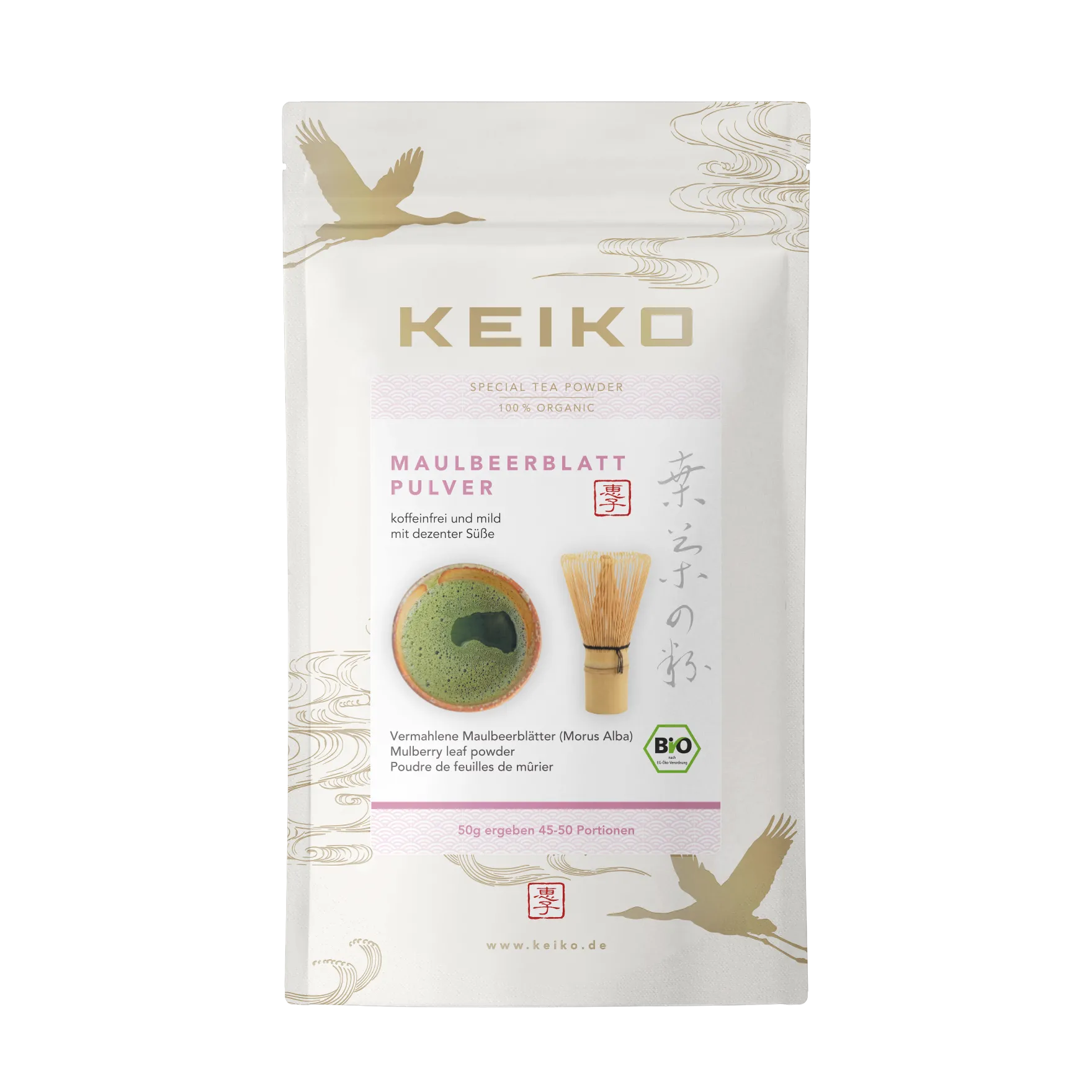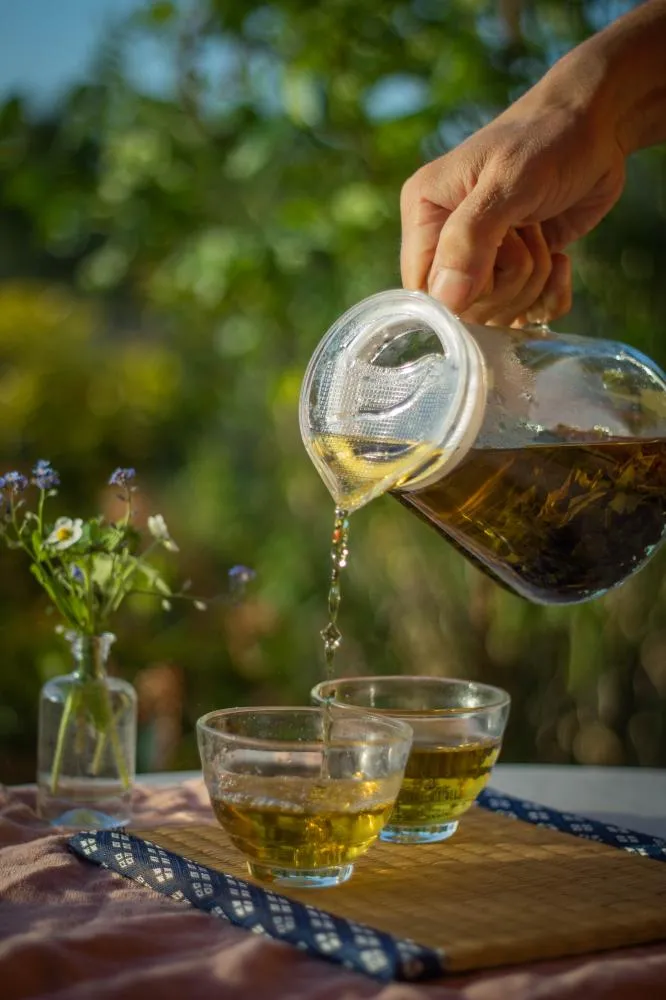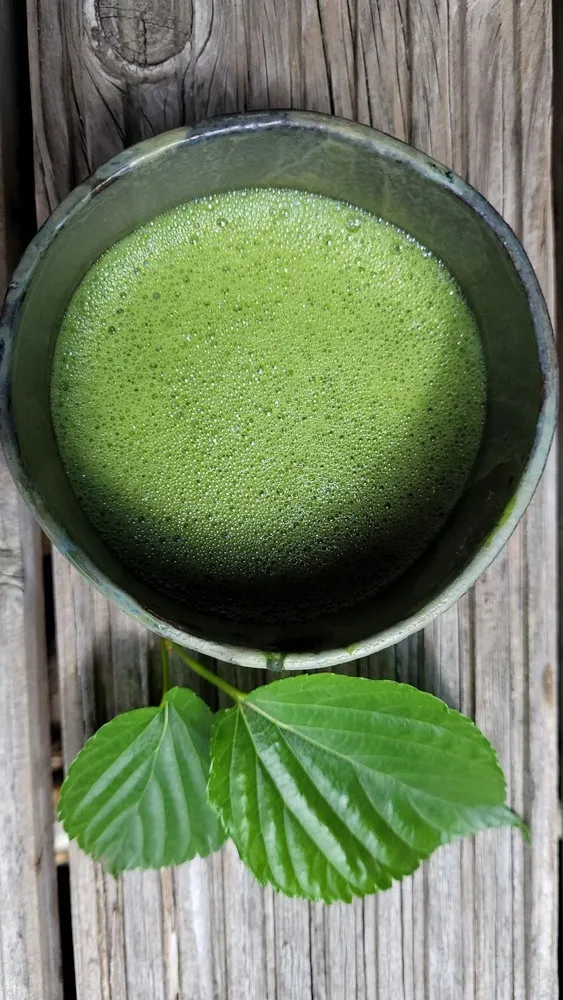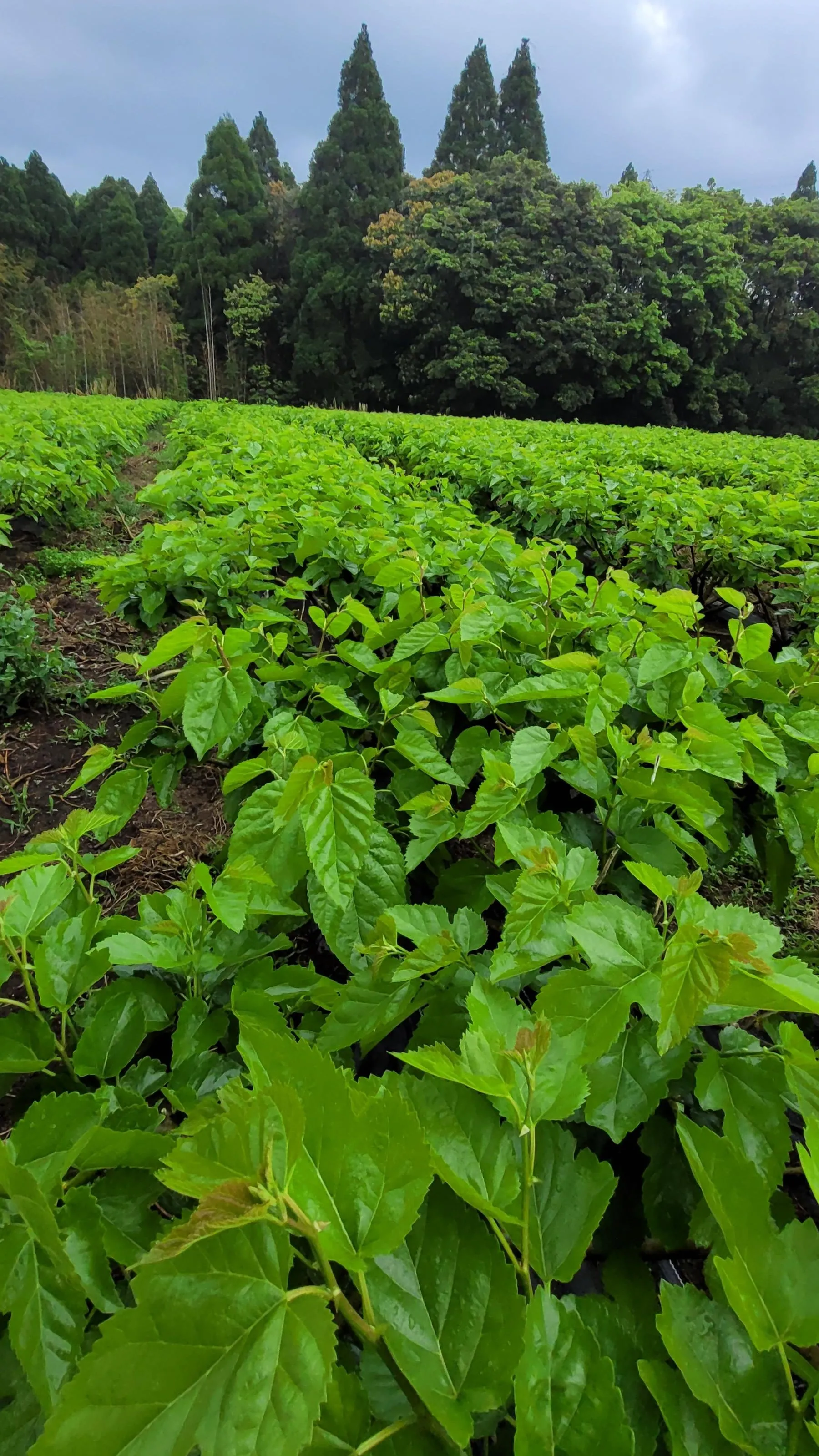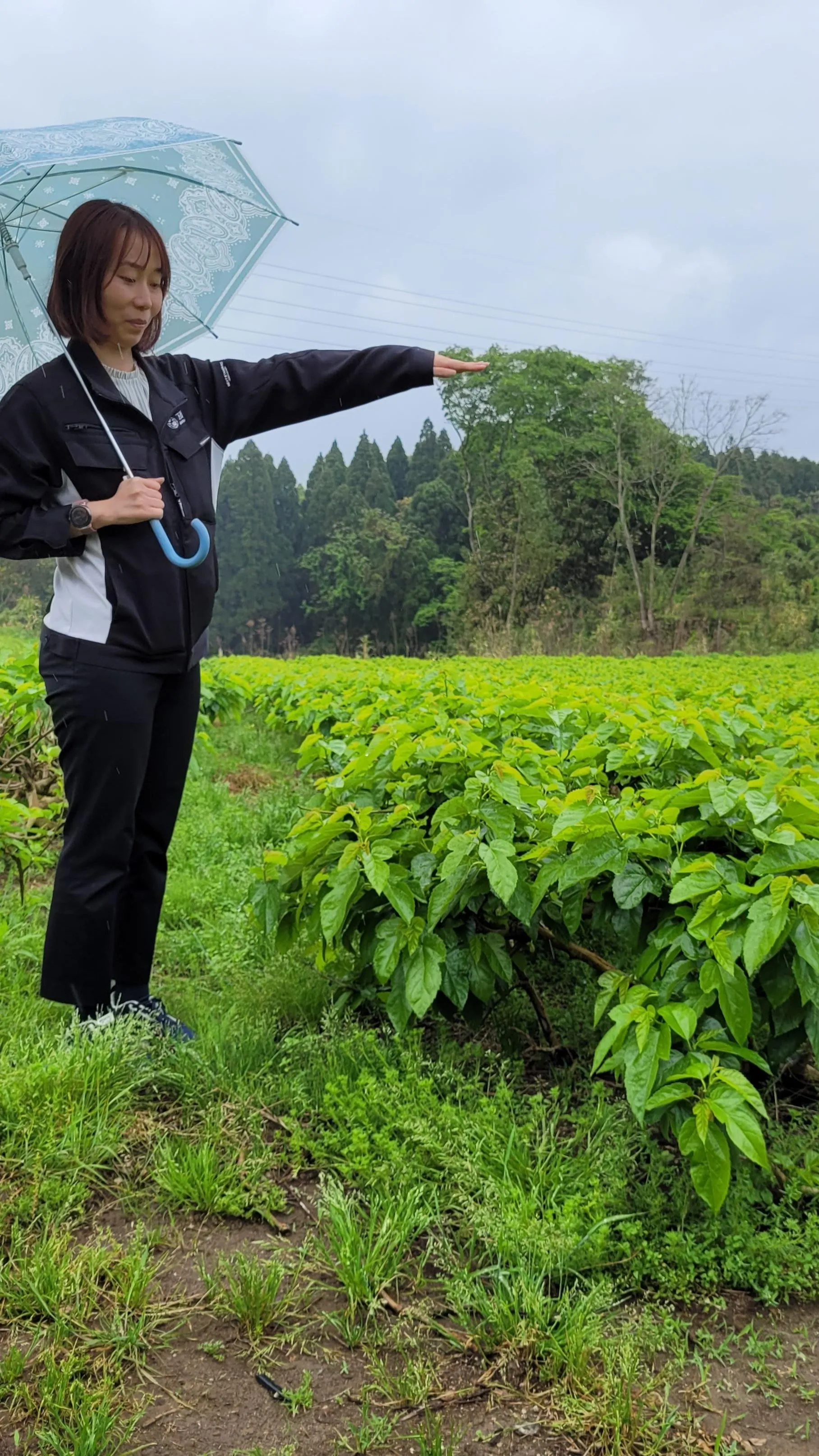Hidden champion: Mulberry leaf tea
Benefits
Mulberry leaf is not only caffeine- and tannin-free, it also contains valuable nutrients such as GABA (gamma-amino-butyric acid), phytosterol, flavonoids, vitamins A, B1, B2 and C, amino acids, calcium, potassium, magnesium, iron and zinc as well as 15 - 25 % protein, which is a very high proportion for a plant.
However, the alkaloid DNJ (deoxynojirimycin), an iminosugar that is only found in higher concentrations in nature in mulberry plants and, according to studies, can have a supportive effect in the treatment of diabetes, is particularly noteworthy.
Aroma
The taste can vary greatly depending on how it is processed. However, all mulberry leaf teas have one thing in common. It is very different from green tea and yet it reminds us of it. It is not for nothing that the powder of ground mulberry leaves is often used for caffeine-free ‘matcha lattes’ in Japan. The taste and colour are similar to matcha tea, especially in powder form. This may be due to the fact that the mulberry leaves are steamed and processed just as carefully as Japanese green tea, which also preserves the delicate ingredients as much as possible. Mulberry leaf tea is remarkably soothing and ideal for a caffeine-free and relaxing treat, even in the evening.
Preparing mulberry leaf tea
The leaves can be infused with hot water as a leaf tea or frothed as a powder like matcha or used for a caffeine-free matcha latte.
Be sure to try combining mulberry leaf tea with green tea or matcha and experience other exciting sides of this tea. Mulberry leaf tea and mulberry leaf powder harmonise amazingly with the flavours of other teas, as a caffeine-free addition or as a sweet component - mulberry leaf tea cuts a fine figure with everything.
Tip: Benifuuki Tea, which is rich in catechins, can become quite bitter if brewed for a long time. By combining benifuuki and mulberry leaf tea, you can round off the flavour according to your preferences.
The beneficial properties, the full flavour and the many possible uses and combinations of mulberry leaves prompted us back in 2017 to include this exceptional product, then grown in Thailand, in our otherwise purely Japanese tea range.
Cultivation and processing
We are delighted to have now also found manufacturers for mulberry leaf tea in Japan. We are currently working with two manufacturers for our mulberry leaf products:
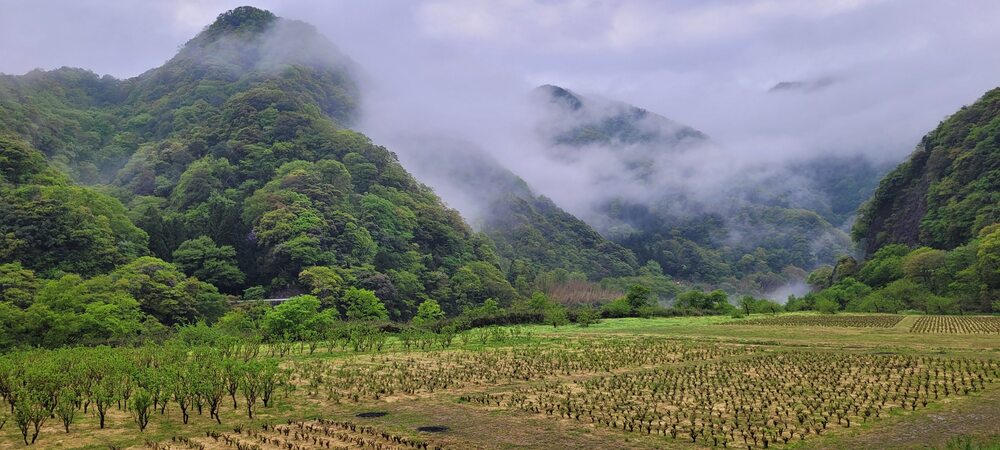
Japan - Shimane
The mulberry trees here are grown organically in a marvellous mountain landscape. The leaves are harvested by hand and then steamed and dried.
The result is Mulberry leaf tea Shimane.
Japan - Kagoshima
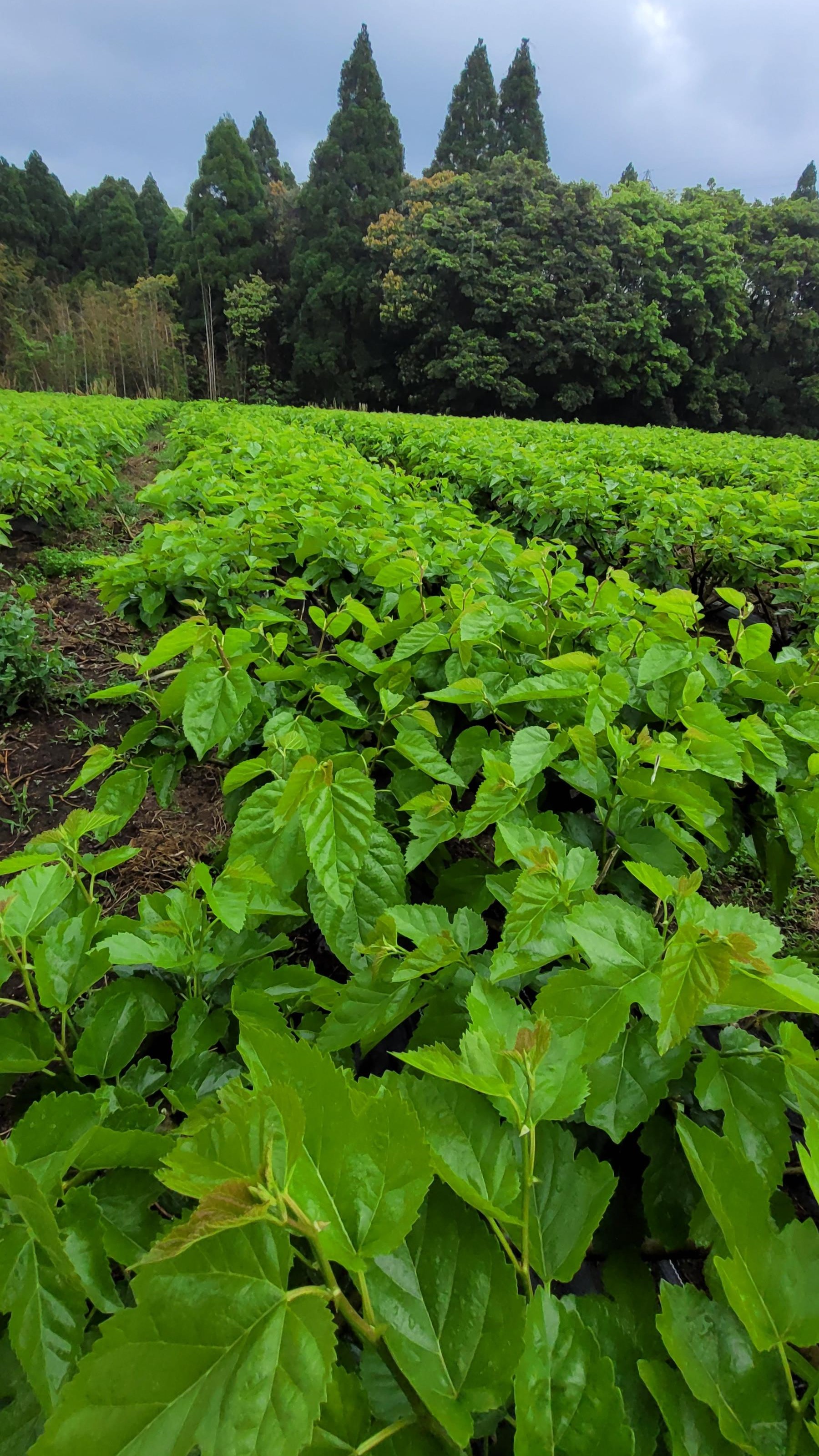
Not far from the KEIKO organic farm, organic mulberry leaves are also grown in Kagoshima Prefecture and are gently steamed on former tea processing plants and processed into Mulberry leaf tea Kagoshima verarbeitet.
Since summer 2023 the Mulberry leaf powder as well as our Matcha Blends (Matcha Magic Mulberry, Matcha Charming Chai and Matcha Roasty Rebel) have already been made of the japanese mulberry leaves.
The powder is ground finer than before and can therefore be foamed better. The colour is now also a little greener!
Related products
Average rating of 4.8 out of 5 stars
Content: 0.05 kg (€299.00* / 1 kg)
Available, delivery time: 1-3 working days (in Germany)
Content: 0.1 kg (€297.50* / 1 kg)
Content: 0.05 kg (€319.00* / 1 kg)
Available, delivery time: 1-3 working days (in Germany)
Average rating of 5 out of 5 stars
Content: 0.05 kg (€299.00* / 1 kg)
Available, delivery time: 1-3 working days (in Germany)
Average rating of 4.5 out of 5 stars
Content: 0.05 kg (€339.00* / 1 kg)
Available, delivery time: 1-3 working days (in Germany)

